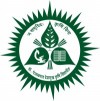|
|
|
|
|
|
|
|
|
|
|
|
|
|
|
|
|
|
|
Scientists |
|
|
|
|
|
|
|
|
|
|
|
|
|
|
|
|
|
|
|
About Project
Fertilizer is a key factor for increasing agricultural production and its consumption in agriculture is increasing rapidly. Need felt for studying the impact of fertilizers not only on the crop yields and quality but also on the soil and the environment under intensive cropping systems which are major users of fertilizers. This has created the need of long term studies at fixed sites for monitoring the changes in nutrient dynamics with the objectives of developing strategies for sustainable productivity by incorporating different fertilizer interventions.
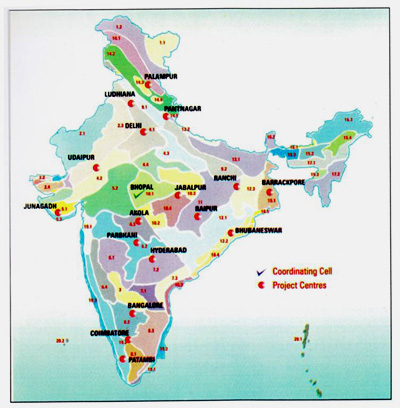
The locations of various centres
In view of the emerging compulsions, the Indian Council of Agriculture Research (ICAR) launched the “All India Coordinated Research Project on Long Term Fertilizer Experiment” in September 1970 at 11 centres.
The LTFE centre was started in the year 1995-96 at Dr. P.D.K.V. Akola on soybean – wheat cropping sequence. In the year 2004-05, the experiment on soybean –wheat cropping sequence was concluded. The the experiment initiated by the Department of Soil Science and Agricultural Chemistry on sorghum – wheat cropping sequence in the year 1988 (kharif) was continued as Long Term Fertilizer Experiment from the year 2005-06. The experiment on sorghum-wheat cropping sequence has completed 21st cropping cycle in the year 2008-09.
Agro Climatic Information
Climate and soil
The experimental site at Dr. Panjabrao Deshmukh Krishi Vidyapeeth, Akola represents the Vidarbha region of Maharashtra state. It lies in between 17057’-21046’ N Latitude and 75057’- 80059’ E Longitude and covers an area of 97762.9 sq. km occupying about 31.92 per cent area of Maharashtra state. The region is bounded by Satpuda Hill Ranges in North, Ajanta Hill Ranges at the South-West and a series of high hill ranges along the Eastern border. It is divided into Godavari and Tapi river basins.
The climatic conditions of Vidarbha region can broadly described as semi-arid type. Region experiences sub- humid to humid conditions in monsoon, semi-arid in winter and arid in summer season.
Akola is situated at the latitude of 22042’ North and longitude of 77002’ East at an altitude of 307.42 m above Mean Sea Level (MSL). It represents Agro Ecological Region No. 6.3 and sub – region number – K5Dm4. Eastern Maharashtra Plateau, hot moist, semi-arid ESR with medium and deep clayey black soils (Shallow loamy to clay black soils) medium to high available water holding capacity (AWC) and LGP between 120-150 days.
Initial soil characteristics of experimental site
The soil of experimental field was classified as Vertisols, particularly montmorillonitic type, hyperthermic, a family of Typic Haplustert. It has smectite clay mineral with swell – shrink properties. The soil contained 31.2 % sand, 16.1 % silt and 51.2 % clay. The soil is slightly alkaline in reaction (pH 8.1), low in available nitrogen (120 kg N ha-1), medium in available phosphorus (8.4 kg P ha-1), very high in available potash (358 kg K ha-1) and have 11.8 mg kg-1 available sulphur and 0.62 mg kg-1 DTPA extractable zinc.
Crop sequence
Sorghum-wheat is an important sequence which is generally being followed in sorghum based crop production system. The Long Term Fertilizer Experiment is based mainly on sorghum-wheat sequence to study the changes in soil quality, crop productivity and sustainability. The sorghum crop is grown on an area of 5.02 million hectares with annual production of 4.38 million tonnes.
Infrastructure Facilities
Advanced Instruments
|
 |
Mandate
-
To study the effect of continuous application of plant nutrients, alone and in combination in organic and inorganic forms including secondary and micro nutrients (as per need) on crop productivity and uptake in multiple cropping systems.
-
To study the effect of application of secondary and micronutrients (as per need) on yield and also on the assessment of the need for these elements under an intensive cropping programme.
-
To work out the amount of nutrients removed by the crops.
-
To monitor the changes in soil properties as result of continuous manuring and cropping with respect to the physical, chemical, and microbiological characteristics of the soil in relation to soil quality and yield sustainability.
Research Activities and Achievements
Sorghum-Wheat sequence
- Vertical distribution of sulphur fractions as influenced by long term manuring and fertilization under sorghum – wheat sequence on vertisols.
- Effect of long term fertilization and manuring on porosity and C:N ratio under sorghum wheat cropping sequence on vertisols.
- Long term effect of manures and fertilizers on soil biological properties and nutrient availability under sorghum wheat sequence.
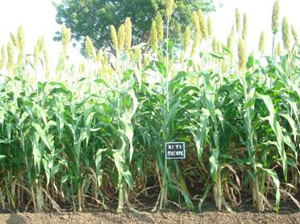 |
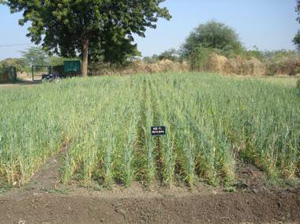 |
|
|
50% NPK
|
||
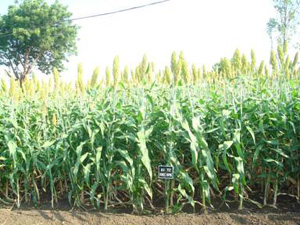 |
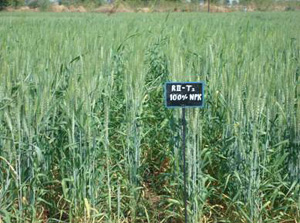 |
|
|
100 % NPK
|
||
 |
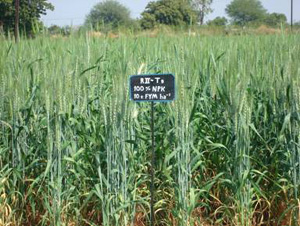 |
|
|
100 % NPK + FYM (10 t ha-1 to sorghum only)
|
||
Research Recommendations
On the basis of long term fertilizer experiment, following recommendations were made during last 21 years and passed through Joint Agresco.
- On the basis of 15 years results of LTFE for sustainable higher production with improved fertilizer particularly in respect to organic carbon pools under sorghum-wheat sequence on vertisols, it is recommended that 10 t FYM ha-1 be supplemented with recommended dose of fertilizer (100:50:40) to sorghum and recommended dose of fertilizer (120:60:60 NPK kg ha-1) to wheat.
- On the basis of 20 years results of long term fertilizer experiment, for sustaining soil quality and crop productivity application of recommended dose of fertilizer along with FYM @ 10 t ha-1 is recommended, however, continuous application of FYM 10 t ha-1 alone improves soil quality but declines crop productivity.
- Under soybean wheat sequence grown on Vertisols it is recommended that either 150 % RD of NPK + S + Zn (45:50:0:20:2.5) or 50 % N through organics (Leucaena Loppings/FYM) should be applied for obtaining higher yield sustainability and improvement in soil fertility.
Extension Activities and Achievements
Research –Extension linkage
Evaluation of efficiency of most sustainable fertilizer use practices for enhancing productivity, sustainability and nutrient response ratio under different cropping systems and Agro-ecological situation (soybean-wheat).
In order to demonstrate and disseminate the technology evolved out of the Long Term Experiment on soybean- wheat sequence at Akola Centre a set of treatments was selected to conduct the satellite experiment on the farmer’s fields. Five locations were selected on the farmers’ fields.
Findings
Application of recommended dose of NPK along with FYM @ 10 t ha-1+ Zn @ 2.5 kg ha-1 to soybean and recommended dose of NPK only to wheat recorded higher grain yield of soybean and wheat in soybean – wheat cropping sequence, which confirms the need of integrated nutrient management approach in sustaining the crop productivity as well as soil quality in various crop sequence.
Publications
-
Effect of Long Term Fertilizer application and cropping on the sustenance of soil fertility and crop productivity under sorghum – wheat sequence in vertisol. Research Bulletin, 2004.
-
Dirgha Mudatiya Khat Prayogache Nishkarsh Folder No. 402, 2008.
Contact Information
Shri S.D. Jadhao
Associate Professor & Principal Investigator
AICRP on Long Term Fertilizer Experiment
Department of Soil Science and Agril. Chemistry
Dr. Panjabrao Deshmukh Krishi Vidyapeeth, Akola – 444 104(M.S.)
Phone: (91) –(0724) 2258201-17 (Extn.1067)
Email ID: sdjadhao@rediffmail.com
shyam_jadhao@ymail.com
